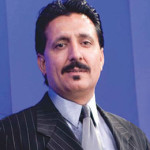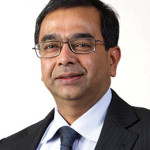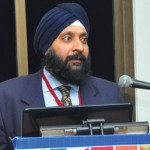
Nearly 60 million in the country are burdened by out- of-the pocket healthcare expenditure. To fill the burgeoning gap, the governments push for universal health coverage, the government-sponsored health insurance schemes (GSHISs) and the engagement with the private insurance companies are proliferating towards a positive outcome, writes Prathiba Raju for Elets News Network (ENN)
In a country where less than 15 per cent of population has some form of health insurance coverage, the potential for the health insurance segment remains high. Hence, there is an urgent need to ramp up the central governments universal healthcare coverage in the country juxtapose to growing private health insurance can address the new public health challenges and inequities in health outcomes, inform health experts.

In India, where most people have dug deep into their pockets to pay doctors, pharmacies and diagnostic centers (or out-of pocket spending) as the norm for a long time, vulnerability to impoverishment caused by medical expenses remains high. At just about 60 dollars per capita of total health spending available in the country, India now has to pay for a dual burden of disease as the non-communicable diseases are now making up the majority of the country’s disease burden statistics. Universal Health Coverage would be a game changer for the country, feels Somil Nagpal, Senior Health Specialist, World Bank.
Surging Towards Wellness
 Although the Indian health insurance market still lags behind other countries in terms of penetration, yet the health insurance segment is rising. It continues to be one of the most rapidly growing sectors in the Indian insurance industry with gross written premiums for health insurance increased by 16 per cent from `13,212 crore in 2011-12 to `15,341 crore in 2012-13. The health insurance premium has registered a compounded annual growth rate (CAGR) of 32 per cent for the past eight financial years.
Although the Indian health insurance market still lags behind other countries in terms of penetration, yet the health insurance segment is rising. It continues to be one of the most rapidly growing sectors in the Indian insurance industry with gross written premiums for health insurance increased by 16 per cent from `13,212 crore in 2011-12 to `15,341 crore in 2012-13. The health insurance premium has registered a compounded annual growth rate (CAGR) of 32 per cent for the past eight financial years.

The increasing awareness about the need for health insurance has been aided by a number of health insurance companies entering India. The double-digit rise in cost of medical treatment at 15 – 25 per cent, also puts a heavy burden on ones personal resources, which is not readily available all the time. The increasing life expectancy to 72 years in India also puts a burden on the healthcare segment to ensure lifestyle maintenance. The number of companies in this segment has led to the growing number of insurance agents selling health insurance policies, Dr Sriharsha A Achar, Chief People Officer & Chief Information Security Officer (CISO), Apollo Munich Health Insurance informed Elets News Network (ENN).
The private health insurance companies informed that the government backing would accelerate the health insurance segment.
We have several expectations from the upcoming Union Budget 2016-2017. As a prerequisite for health insurance to become an important aspect of ones financial planning, we look forward to the adoption of the long pending National Health Policy in the upcoming budget announcement. Coupled with the rising costs of healthcare and the Governments focus on enabling access to all, we believe there could be an announcement for the institution of a regulatory framework to govern the medical industry. Without this, healthcare providers have been found to abuse the system, and charge customers unnecessarily high rates, Achar said.
|
India now has to pay for a dual burden of disease as the non-communicable diseases are now making up the majority of the country’s disease burden statistics. Universal Health Coverage would be a game changer for the country |
|---|
95 per cent of middle-class Indians do not have enough health insurance to cover some of the most common procedures and ailments in the country. Consumers above 45 who are at higher risk of health problems and closer to retirement, are least prepared for emergencies as they are under-insured by an average of 69 percent
Informing that reducing rate for service tax would benefit the health insurance sector, S Prakash, utive Director, Star Health and Allied Insurance Company, informed Elets New Network that the segment is flourishing as the premium secured under health insurance was registering a significant rise. Even the insurance regulator, which earlier categorised health insurance as one of the components under miscellaneous, has now brought it as a separate category.
Wave of a New Era
A new era of health insurance development is seen in India and many multinational companies in collaboration with international insurers are proliferating with innovative products and distribution channels, and the raising of supervisory standards.
Overall, the Indian healthcare market is young right now with many of its sections in a nascent stage. One of these sections is the health insurance market, which is primarily government-driven. I believe the health insurance sector in India will start evolving soon, and the sea change that this sector needs will eventually be brought about, Robin Raina, CEO, Ebix informed.
|
We have several expectations from the upcoming Union Budget 2016-2017. Looking forward to the adoption of the long pending National Health Policy in the budget announcement |
|---|
Not All Fit and Fine?
However, a recent report by Big Decisions.com, a personal finance advice platform, revealed that 95 per cent of middle-class Indians do not have enough health insurance to cover some of the most common procedures and ailments in the country. Surprisingly, consumers above 45 who are at higher risk of health problems and closer to retirement, are least prepared for emergencies as they are under-insured by an average of 69 per cent.
The Big Decisions study is based on data obtained from 10,000 consumers across eight major cities, aged 25 to 45+ and in the income bracket ranging from `6 to 36 lakh annually.
With more private companies entering the health insurance, which is currently limited to certain treatments, will be extended to various treatment and procedures too.
There are good reasons to expect that the growth momentum can be sustained. In particular, there is a huge untapped potential in various segments of the market. In health insurance, as insurers can play a critical role in bridging demand and supply gaps, major changes in both national economic policies and insurance regulations can help highlight the prospects of these segments going forward, Achar added.
Govt backing fruitful
 While the private health insurance companies are slowly making inroads in health insurance, the government sponsored schemes helped cover over 300 million people with some form of insurance.
While the private health insurance companies are slowly making inroads in health insurance, the government sponsored schemes helped cover over 300 million people with some form of insurance.
A report by World Bank indicates over the last five years, government sponsored schemes have contributed to a significant increase in the population covered by health insurance in the country, scaling up at a pace possibly unseen elsewhere in the world. Over 300 million people, or more than 25 percent of India’s population, gained access to some form of health insurance by 2010, up from 55 million in 2003-04. More than 180 million of these were people below the poverty line.
 S Prakash, S Prakash,utive Director, Star Health and Allied Insurance Company Health insurance segment is flourishing. Even the insurance regulator, which earlier categorised health insurance as one of the components under miscellaneous, has now brought it as a separate category |
|---|
The report projects that more than 630 million persons, or about half of the country’s population, can be covered with health insurance by 2015. By this time, spending through health insurance is also likely to reach 8.4 percent of total health spending, up from 6.4 percent in 200910.
 Robin Raina Robin RainaCEO, Ebix Health insurance market is primarily government-driven. I believe the health insurance sector in India will start evolving soon, and the sea change that this sector needs will eventually be brought about |
|---|
The various central government sponsored schemes, the National Rural Health Mission (NRHM), launched in 2005, expanded to the urban population through the National Urban Health Mission (NUHM) in 2013. To provide financial protection to targeted populations and the Rashtriya Swasthya Bima Yojana (RSBY), covers the cost of secondary-level hospitalisation. In addition to array of state specific insurance schemes, a national framework for UHC is needed informed Dr. Henk Bekedam, WHO representative to India.
A clear vision where India wants to be in 15 years and a roadmap, including a step-by-step process to get there is necessary. This will require an agreed upon process in consultation with all stakeholders with a key role for the state governments, Bekedam added.
The Centre and State government should coherently enable and drive health policies and programmes, which are state specific, and developing a unifying national framework for UHC that carries all of us in India towards the SDG targets and promotes health equity across geographical, social and gender distinctions.
Tech enabled workforce
 Technology-enabled frontline workers are especially needed to increase outreach.
Technology-enabled frontline workers are especially needed to increase outreach.
Adoption of IT in our operations will increase the level of customer services and customer relations multifold. In the health insurance domain, IT requires heavy investments, where adoptions take time. Organisations must accelerate their investments and should be ready to embrace the change in the same pace. As customers of the health insurance industry are quite varied, one solution does not suit all customers.
Customisation and made to suit applications and solutions are mandatory today for success. We certainly need assistance from the insurance regulator to consider some more visibility on the adoption of cloud and information security required on cloud. Currently, we cannot use global cloud to store customer data outside Indian boundaries. Adopting cloud technologies can give a health insurance company a cutting edge in terms of technology and delivery of customer facing applications, Achar informed.
With rapidly evolving technology, the need of the hour for companies is to remain ahead of the curve and this puts a tremendous onus on IT teams to turnaround projects quickly. An agile mindset works on leveraging collaboration and engagement in real time to achieve desired outcomes.
There is a dearth of IT resources that understand business needs and are able to churn out solutions which are apt from the word go. Usually, there are delays, errors and poor quality that is seen which if avoided can be a boon for a company.
 Dr Henk Bekedam Dr Henk BekedamWHO Representative to India A national framework for UHC and a clear vision where India wants to be in 15 years and a roadmap, including a step-by-step process, is necessary |
|---|
Shortage in financial budgets is another challenge that limits IT penetration among health insurers. By virtue of the business model constraints of health insurers, large spend are not common, even though they might be fruitful for a company. This needs to be addressed by the IT industry and insurers together in the interest of the customer.
UHC calls for financial protection, to reduce out-of-pocket spending, curb catastrophic health expenditure and prevent healthcare- related impoverishment. While it will probably take some years for UHC to evolve to nearly complete levels of population coverage, service coverage and cost coverage, early relief can come through the free provision of essential drugs and diagnostics at strengthened public facilities. The various Central and State insurance schemes too need to be unified to provide an expanded package of services, with an emphasis on primary and secondary health care for all while allowing the poor unimpeded access to essential tertiary , said K Srinath Reddy, President, Public Health Foundation of India (PHFI).
 K Srinath Reddy K Srinath ReddyPresident, Public Health Foundation of India (PHFI) UHC calls for financial protection, to reduce out-of pocket spending, curb catastrophic health expenditure and prevent healthcare-related impoverishment |
|---|
Meanwhile the union health ministry has informed that the government is committed to advancing Universal Health Coverage in India. Increasing the public health spending to two per cent of the GDP over the next four to five years will certainly make the health sector more responsive, said BP Sharma, Secretary, and Ministry of Health & Family Welfare.
Be a part of Elets Collaborative Initiatives. Join Us for Upcoming Events and explore business opportunities. Like us on Facebook , connect with us on LinkedIn and follow us on Twitter , Instagram.


 Somil Nagpal
Somil Nagpal Dr Sriharsha A Achar
Dr Sriharsha A Achar









